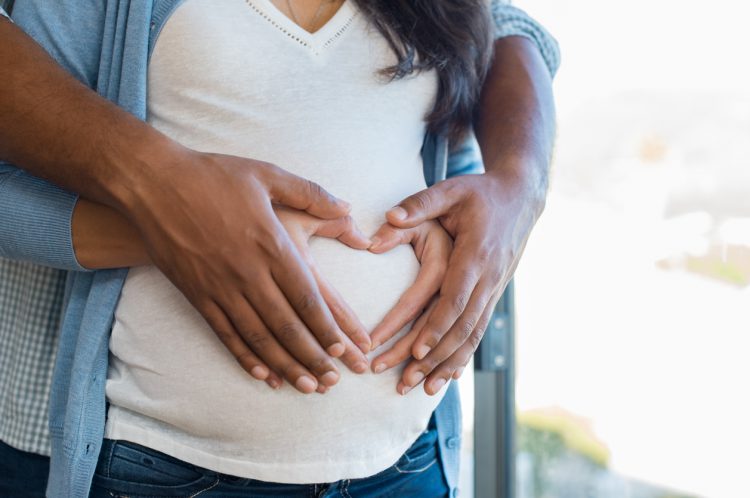Project Description
7 Old Wives’ Tales About Getting Pregnant That Can Actually Be True
There are plenty of words of wisdom about pregnancy that seem to get passed on from generation to generation, but it’s hard to tell which ones are true and which are just folklore. Believe it or not, there are a number of old wives’ tales about getting pregnant that are actually true, and knowing which of these pieces of advice can actually help you conceive can make the process a bit easier. Sadly, nothing can make you magically pregnant, but pick up a few of these tips and you might find the conception process to be a little less stressful.
” When it comes to old wives’ tales, there are two rules of thumb: Ask your doctor and use your best judgement,” says Dr. Marie Werner of Reproductive Medicine Associates of New Jersey (RMANJ) over email. “There are many old wives’ tales surrounding pregnancy and reproduction, and for some of the simple stuff there is no harm in believing (like eating pineapple core). However, if the myth requires you do something potentially harmful, you should hold off until you discuss it with your doctor.
If you’re looking to get going on making a baby, pay attention to these seven wives’ tales about getting pregnant that are actually true.
1. Honey With Cinnamon Can Enhance Your Fertility
Honey was known to the Egyptian as the food of love and was also said to be offered to the gods of fertility, and they may have gotten something right. “Raw honey contains amino acids that are helpful for ovarian function and can be beneficial to the reproductive system,” says fertility expert Jane L. Frederick, MD, FACOG over email. “Cinnamon mixed with the honey can actually help with blood flow to organs for reproduction.” A study from Columbia University Medical Center also found that taking cinnamon supplements helped jumpstart irregular menstrual cycles in women with polycystic ovarian syndrome, a common infertility disorder.
2. The Best Time To Conceive Is When You’re In The Mood
If you’re feeling particularly frisky, it might be a good time to attempt the baby-making. “Women are only fertile around the time of ovulation, which occurs during the middle of a woman’s menstrual cycle,” says reproductve endocrinologist Dr. Alison Zimon over email. “Around the time of ovulation, a woman’s estrogen level reaches it’s peak. This causes a woman to have a stronger libido, a more intense sense of smell, and increased vaginal lubrication.”
3. An Orgasm Increases Your Chances Of Pregnancy
Turns out, a woman’s orgasm may be able to act as an internal vacuum. “Studies have shown that uterine contractions occurring just before or up to 45 minutes after the male ejaculates can pull the sperm up into the vaginal canal and through the fallopian tubes,” says Joseph R. Garza, M.D., the Chief Fertility Officer with the Advanced Fertility Center, over email. Additionally, the oxytocin released during an orgasm can help relax women.
4. You Should Elevate Your Legs After Ejaculation
You may have heard that keeping your legs raised can increase your chances of conception, and there is some truth to this. “Semen that remains in the vagina for 15 minutes after ejaculation may increase the odds of conception,” says Garza. “The ejaculate will gel so as to prevent loss and then liquefy to release sperm into the woman’s cervix, uterus, and through the fallopian tubes.” Many women try to retain sperm as long as possible by lying on their backs with their legs in the air. Garza notes that while this certainly can’t hurt, there’s typically enough semen in ejaculate for an egg to be fertilized, regardless of whether a little is lost due to gravity.
5. Pregnancy Happens When You Stop Stressing
We’ve all heard of that couple who conceived after a trip together or after they started applying for adoption, but this usually has to do with diminished stress levels. “Unfortunately, high stress levels can contribute to a woman’s inability to become pregnant,” says Garza. “While conclusive answers are still vague, many physicians believe that elevated cortisol levels due to stress can wreak havoc on the body, which can hinder ovulation and reduce the blood flow to the uterus. This can not only affect the chances of natural conception, but may also negatively impact the success rates of IVF.”
6. Cough Syrup Can Help You Conceive
A little bit of cough syrup might be the key to getting pregnant. “Cough syrup that contains guaifenesin thins not only the mucus in your chest, but also in your cervix,” says Garza. “This loosening of cervical mucus can create a more hospitable environment for sperm. Just be sure not to get cough syrup that contains antihistamines, which can have the opposite effect on fertility by drying out mucus and making sperm travel more difficult.” Garza also notes that if if you’re going to try this trick, you should only take the medication during the week you know you’re ovulating — you don’t want to take more medicine than necessary.
7. Acupuncture Can Help With Fertility
Acupuncture always seems to be the go-to solution, and it could prove to be useful for your fertility. “Acupuncture may have multiple physical effects on the body and has been associated with regulating essential cytokines, hormones, immune modulators, and even the nervous system,” says Werner. “In addition, acupuncture may help increase blood flow to pelvic organs.”



